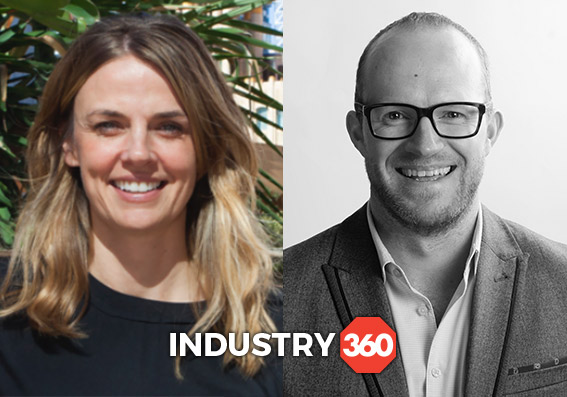Industry360: What’s holding Australian creative agencies back?
Industry360 gives Mumbrella readers a top-line view on what’s really going on in the media, marketing and advertising industries. This week we pose some tough questions to Host/Havas CEO Laura Aldington, and WhiteGrey CEO Lee Simpson about why Australian creative agencies aren’t doing better work, and if media and creative are destined to come back together.
Laura Aldington, CEO, Host/Havas, and Lee Simpson, CEO, WhiteGrey
What is holding back Australian creative agencies from doing better work?
Aldington: I don’t think ‘great work’ is as much of a priority for marketers as it was once was and I completely empathise with why as they come under increasing pressure to deliver short-term results and not long-term effectiveness.
It’s generally accepted that the best work is work that’s committed to and evolved over time. This is work that eventually plays a significant role in shaping and growing a brand. But high churn on both agency and marketing side, in addition to increasing pressure to change something if it’s not immediately seen to be ‘driving sales’, can prevent the required consistency from being achieved.



I’ll tell you what is holding creative agencies back…lack of senior creative leadership. Too many great minds and folk who understand brands, have been turfed out, for ‘the below 35’s’. Many of us are given “you don’t understand digital” BS. The forces that be don’t get the fact that we were the digital pioneers, the people who started digital agencies. We grew up having to be planners as well as CD’s. We get what it takes to build a brand and I’m astounded how many marketing clients barely mention the word brand when giving an agency a brief. Do me a favour: ask your current ECD/CD what their definition of a brand is. You’ll be astounded by their answers (or lack of).
Bad clients.
Very few them know what they’re doing and they still think branding means increasing the logo size…. I have not seen such a surfeit of client talent right now in the last 20 years that I’ve been working. Unilever..shame on you.
First, I agree that the quality of marketing has, and continues to decline. Marketing is now primarily focussed on sales goals rather than building brands.
But my query is that you say that there is “a surfeit of client talent”. Do you really mean a ‘surfeit’? I would think that it is more like a ‘dearth’.
The opinions so far have answered most of the few reasons that marketing and creativity have slumped in recent years. The short answer is a greedy switch to “Bean Counters” and a false realisation and acceptance of the age-old fear that the arty farty types may just have been having us on.
We are living in a world where almost anyone who owns a PC or a digital ” whatnot” with the appropriate soft wear, considers him/herself to be a graphic artist or a sound engineer, an editor or a copywriter.
Likewise, anyone who can remember a few lines from Game of Thrones or do a fairly good impersonation of their favourite film/video character imagines that he/she is a voiceover artist ( Voice Actor) or budding movie star.
Great creative work involves risk-taking. When your client is captive of the PC ‘woke’ Stasi, like a Qantas, PwC or other clichéd brands – there will be no risk taking. There will only be compliance with prescribed ideology. When in turn, your agency only hires stubble-faced hipsters who parrot every ‘woke’ faddish mantra, and have no sense of humour about anything, that combined with such clients equals lousy creative.
Dear Robert
Every time I hear someone say ‘Great work requires risk-taking’,
or ‘Great work requires you to be brave’, all I hear is an excuse for people wanting to be different and do anything they want.
Great work does not have to involve risk-taking.
Great work can be the simplest most risk-averse work if it’s right.
Great work does not have to involve risk-taking, but great work often does require risk-taking, so what is your point?